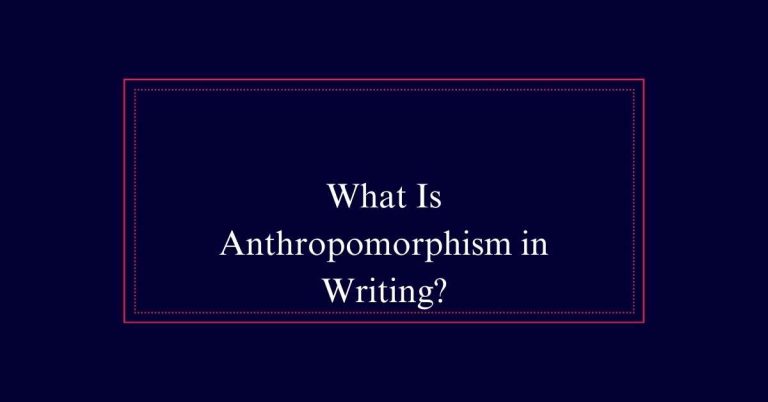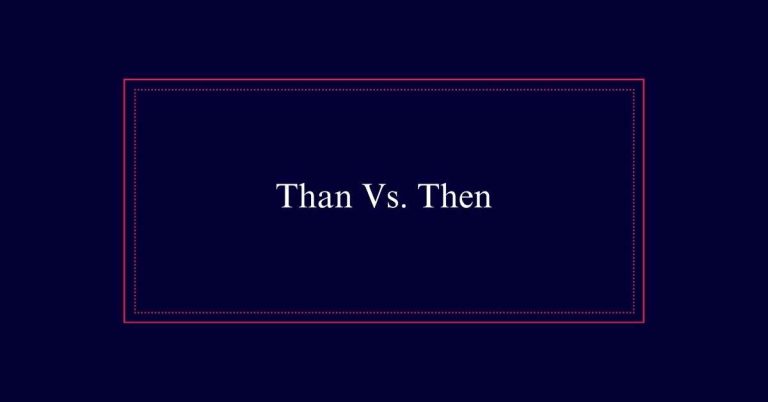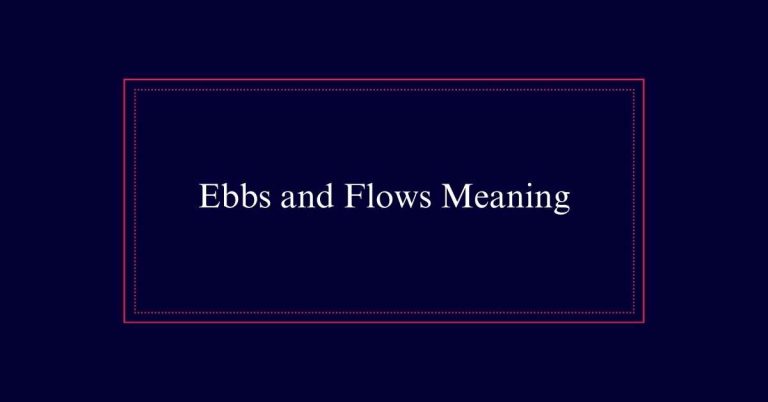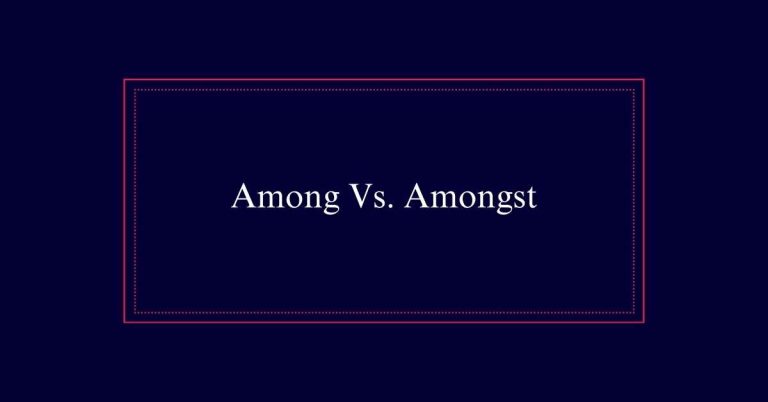Is “Undoubtably” a Word?
Yes, “undoubtably” is a word, although it is less common than “undoubtedly” or “indubitably.” “Undoubtably” is an adverb that conveys absolute certainty, derived from the word “undoubtable.” It serves to emphasize the lack of doubt in a statement. While grammatically correct, it is not widely recognized in formal writing. “Undoubtably” shares the same Latin root “dubitare” as its more frequently used counterparts.
Definition of ‘Undoubtably’
Undoubtably is an adverb used to describe something that cannot be doubted or questioned. It expresses absolute certainty. The word derives from the adjective ‘undoubtable,’ carrying the same meaning. Both terms emphasize the lack of any doubt about a statement or fact.
The root of ‘undoubtably’ is ‘doubt,’ which comes from the Latin word ‘dubitare,’ meaning to be uncertain. As an adverb, it modifies verbs, adjectives, or other adverbs to underscore their undeniable nature.
For instance, one might say, ‘The evidence presented was undoubtably convincing.’ This usage highlights the indisputable quality of the evidence.
Usage of ‘Undoubtably’
In various contexts, ‘undoubtably’ serves to emphasize the absolute certainty of a statement or fact. It is used to stress that something is beyond any doubt.
For example, one might say, ‘The experiment’s results were undoubtably successful,’ highlighting the unequivocal success of the experiment.
Another instance could be, ‘She is undoubtably the best candidate for the job,’ which underscores the certainty of her qualifications.
Although less commonly used than its synonyms, ‘undoubtably’ can still be found in both written and spoken English. Its usage, while grammatically correct, often depends on personal preference or stylistic choice.
Comparing ‘Undoubtably’ and ‘Indubitably’
Both ‘undoubtably’ and ‘indubitably’ convey an absolute sense of certainty. While they share a similar meaning, their usage can vary based on context and preference. ‘Indubitably’ is more commonly used and widely accepted in formal writing, whereas ‘undoubtably’ is less prevalent but still understood.
| Aspect | Undoubtably | Indubitably |
|---|---|---|
| Meaning | Cannot be doubted | Cannot be doubted |
| Usage Frequency | Less common | More common |
| Formality | Less formal | More formal |
| Origin | Latin ‘dubitare’ | Latin ‘dubitare’ |
| Acceptance | Less recognized | Widely recognized |
Undoubtably’ Vs ‘Undoubtedly
When comparing ‘undoubtably’ and ‘undoubtedly,’ one must acknowledge the subtle differences in their meanings and usage. Both words convey certainty, but with distinct nuances:
- ‘Undoubtably’: This adverb suggests something that cannot be doubted or questioned. It implies absolute certainty.
- ‘Undoubtedly’: This adverb also indicates certainty but without the exclusive claim of being beyond doubt. It expresses confidence more broadly.
- Usage Patterns: ‘Undoubtably’ is less common and may sometimes be questioned in formal writing, whereas ‘undoubtedly’ is widely accepted and frequently used.

Validity of ‘Undoubtably’
The validity of ‘undoubtably’ as a word often sparks debate among language enthusiasts and scholars. Some argue that it is a legitimate adverb, derived logically from the adjective ‘undoubtable.’ Its meaning aligns closely with ‘indubitably,’ indicating something that cannot be doubted.
However, ‘undoubtably’ is not as commonly used or recognized in formal writing. Many dictionaries do not list it, raising questions about its acceptance. On the other hand, similar words like ‘undoubtedly’ and ‘indubitably’ are widely accepted and frequently used.
Origins of ‘Undoubtably’
Understanding the origins of ‘undoubtably’ requires tracing its etymology back to Latin. The word ‘doubt’ stems from the Latin verb ‘dubitare,’ meaning to hesitate or be uncertain. From this root, various forms and derivatives have evolved in English.
Here is a concise breakdown:
- Latin Influence: The root ‘dubitare’ is foundational in understanding related English words.
- Morphological Evolution: ‘Dubitare’ transformed into ‘doubt’ in Middle English, which then led to ‘undoubtable’ and subsequently ‘undoubtably.
- Adverbial Form: ‘Undoubtably’ is the adverbial form of ‘undoubtable,’ meaning something that cannot be doubted.
Latin Roots of Related Words
Exploring the Latin roots of related words reveals a fascinating journey through language evolution. The word “doubt” comes from the Latin “dubitare,” which means to hesitate. This root also gives us words like “dubious” and “indubitably.” Understanding these roots helps clarify their meanings and connections.
Here is a table of related words and their Latin origins:
| English Word | Latin Root |
|---|---|
| Doubt | Dubitare |
| Undoubtably | Dubitare |
| Indubitably | Dubitare |
| Dubious | Dubitare |
| Dubitable | Dubitare |
Evolution of ‘Doubt’ in English
Building on the Latin origins of ‘doubt,’ its evolution in English reveals intriguing shifts in meaning and usage over centuries. Initially derived from the Latin word ‘dubitare,’ meaning ‘to hesitate,’ ‘doubt’ entered Middle English with connotations of uncertainty and skepticism.
Over time, its use expanded and solidified in the English lexicon.
Key milestones in its evolution include:
- Middle English Usage: ‘Doubt’ began to signify both mental uncertainty and lack of conviction.
- Shakespearean Era: The term gained prominence in literature, reflecting deep philosophical and existential queries.
- Modern English: ‘Doubt’ now often implies suspicion or questioning of facts.
Examples in Context
Using ‘undoubtably’ in context can illuminate its proper application and subtle nuances. For example, in a sentence like, ‘The results of the experiment were undoubtably accurate,’ the word emphasizes the unquestionable accuracy of the results.
Another example is, ‘She is undoubtably the best candidate for the position,’ suggesting absolute certainty in her qualifications.
In literature, one might find, ‘The hero’s bravery was undoubtably unmatched,’ highlighting an irrefutable quality.
These instances showcase how ‘undoubtably’ is used to convey a strong sense of certainty.
While often interchangeable with ‘indubitably,’ ‘undoubtably’ carries its unique emphasis, making it valuable in specific contexts.
Etymology in Language Study
Understanding the etymology of words like ‘undoubtably’ enhances their proper usage and reveals the evolution of language. Etymology, the study of word origins, provides insights into how words develop and change over time.
For instance, ‘undoubtably’ stems from the root word ‘doubt,’ which originates from the Latin ‘dubitare.’
Here are three key points in etymology:
- Historical Roots: Tracing words back to their original languages, such as Latin or Greek.
- Word Evolution: Observing how words morph in meaning and form through centuries.
- Cultural Influence: Understanding how cultural and societal changes impact language usage.






